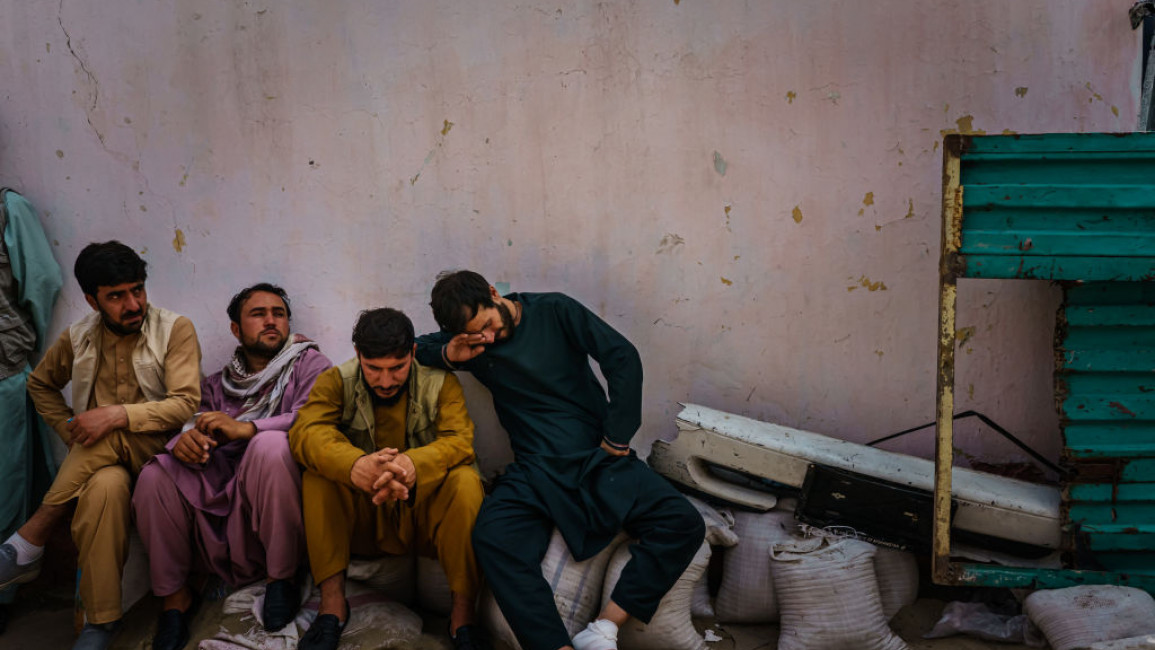
The staggering arithmetic of loss, 20 years after 9/11
The 20th anniversary of 9/11 marks the end of the "unipolar moment" that saw America emerge as the sole superpower from the Cold War. Despite prevailing in every major battlefield over the last two decades, the United States has, paradoxically, lost the so-called "War on Terror", as measured by its own stated objectives.
Its recent ouster from Afghanistan is just the latest in a string of defeats that has exposed the limits of American military power and prowess.
Official commemorations of the event will no doubt emphasize the net benefits of the conflict, and how the American homeland has remained safe as a result. A more honest assessment would balance the lack of major domestic attacks with the vast costs borne by foreign populations who absorbed the brunt of American operations and terrorist attacks overseas.
"A more honest assessment would balance the lack of major domestic attacks with the vast costs borne by foreign populations"
Brown University's Costs of War project has attempted to quantify this gargantuan toll. It calculated that some 37 million people have been displaced by America's War on Terror; along with nearly 800,000 killed. On aggregate nearly $6.4 trillion has been spent by the Pentagon on military operations across 85 countries. Domestically, American Muslims have been subjected to harassment, surveillance by security agencies, and a lingering suspicion that their faith is foreign to the American experience.
In reality, the gradual decline in US soft power and credibility has been glaringly obvious since 2001, straining the system of alliances that has anchored US hegemony. And today, Americans are finally coming to this realisation, too.
Indeed, US partners in the European Union, South Korea, Japan and Taiwan now quietly, and occasionally very loudly, question the wisdom of solely relying on US commitments for their defence. This question regained urgency after the fiasco in Kabul where the US failed to provide refuge to its defeated Afghan allies.
Washington's attempts to forcefully impose its version of democracy overseas have damaged the standing of America's own political system along with liberalism, the philosophy that underpinned the global order the US forged after WWII. Denigrated as a spent doctrine, US adversaries (principally Russia and China) cite the failure of US-installed regimes in Afghanistan and Iraq as proof that inorganic institutions and procedural democracy will never flourish under the force of foreign arms.
US anti-terrorism operations have also had the perverse effect of signalling to US-backed regimes that the American focus on human rights is subordinate to its national security interests. American allies such as Egypt, Saudi Arabia noted this dichotomy, and have pressed ahead with expanding their authoritarian agendas, ostensibly in the name of preserving stability and rooting out terror.
"In reality, the gradual decline in US soft power and credibility has been glaringly obvious since 2001"
Rather than constrain terrorism, US actions since 9/11 have at times actually caused it to proliferate. The deceitful invasion of Iraq watered the toxic soil that birthed Islamic State group (IS), arguably the most deadly terrorist group of modern times. It was IS Khorasan that carried out the recent deadly suicide bombing at Kabul airport. Astonishingly, the US has affirmed it is willing to work with the new Taliban regime and by extension Al Qaeda, to keep IS in check.
At home, the US unwisely chose to racialize the problem of terrorism and assumed this was exclusively a crisis stemming from a foreign religion and its fanatical followers. In reality, the gravest domestic terrorist threats facing the United States stem from the far right. By focusing exclusively on jihadist violence, Washington effectively let white nationalists and associated fascist groups grow in strength to the extent that their partisans were able to raid the US Capitol, unopposed. This oversight is only now starting to be corrected with the belated realization that terrorists can - and often do - look like "ordinary" Americans.
Taliban order university women to wear face-covering niqabhttps://t.co/vLoeciAvdW
— The New Arab (@The_NewArab) September 5, 2021
In spite - or perhaps because of - 9/11's staggering arithmetic of loss, the Biden administration is keen to signal an end to the Forever Wars. Implicitly conceding the impossibility of ever defeating "terrorism" (which is, after all, a tactic not an adversary), the White House now claims that the nature of terrorism has changed, and so must the methods used to fight it. Determined to declare "victory", the administration now hopes to change the prevailing narrative and re-focus bipartisan attention on China, where US military, diplomatic and economic resources are being increasingly expended.
But for all those who bore the brunt of US actions after 9/11, whether by invasion, drone strike, or night raids by western special forces, the idea of America is now inextricably linked to images of shackled prisoners in orange jumpsuits; the interminable detentions at Guantanamo Bay; the hooded torture victims of Abu Ghraib; endless kill lists and a violent, global drone assassination campaign.
And yet, "terrorist" forces remain extremely potent and have spread far beyond their original homes. This is the true legacy of 20 years of war.
Owais Zaheer is a freelance data researcher who has previously written for a variety of publications including The Friday Times, Muftah and the Daily Times. He is a researcher at 416LABS.
Follow him on Twitter: @EastofAden
Have questions or comments? Email us at editorial-english@alaraby.co.uk
Opinions expressed in this article remain those of the author and do not necessarily represent those of The New Arab, its editorial board or staff.



